
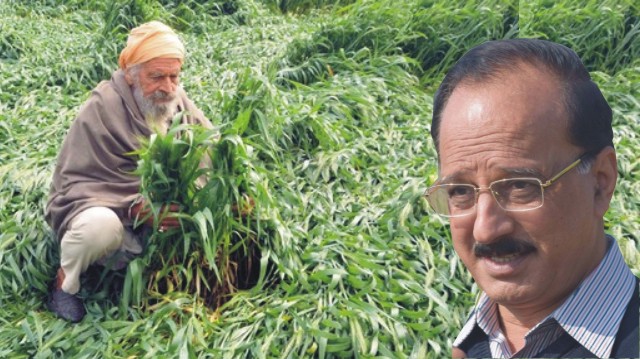
In 2022, India added an important chapter in the agricultural history of India with iconic protest by farmers which led to the repeal of the three farm laws. But the fight and struggle of farmers not yet ended and in 2023 it is yet to be seen how the issue of MSP is going to unfold because the government has done little to address it and is dilly-dallying on the MSP demanded by farmers. Farmers long march to Mumbai and Delhi once again likely to revive MSP demand.
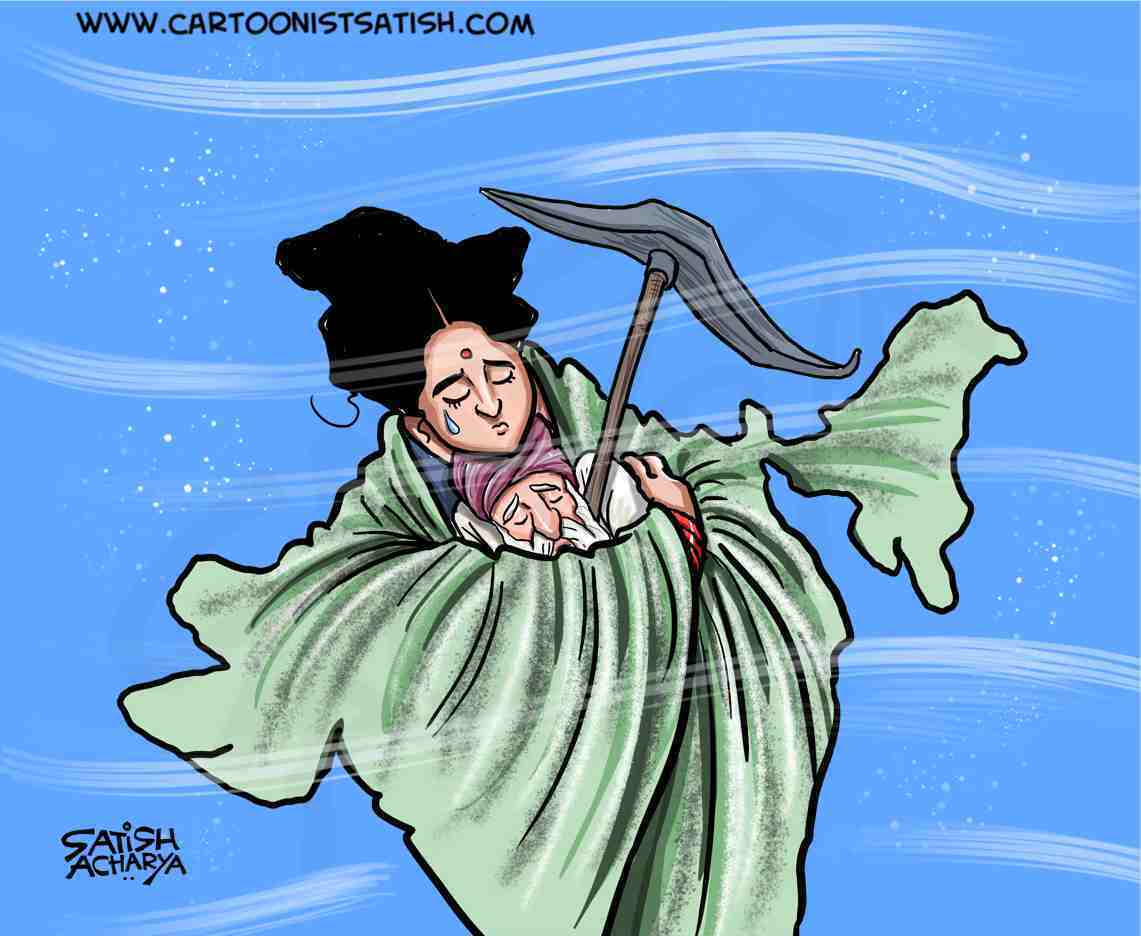 India in 2023 cannot afford to continue to downplay the value and contribution of agriculture in boosting the national economy and ensuring the general welfare of the nation. However, innovative policies are needed to change farmers’ livelihoods and guarantee both a healthy environment and agriculture that is non-chemical, less use of pesticides and agriculture moving forward towards Agro-Ecological farming system with assured income.
India in 2023 cannot afford to continue to downplay the value and contribution of agriculture in boosting the national economy and ensuring the general welfare of the nation. However, innovative policies are needed to change farmers’ livelihoods and guarantee both a healthy environment and agriculture that is non-chemical, less use of pesticides and agriculture moving forward towards Agro-Ecological farming system with assured income.
Devinder Sharma, a trained agricultural scientist and noted agriculture expert, in an interview with Mohd Naushad Khan, spoke at length on farmers long march to Mumbai and Delhi, aspiration of farmers, MSP, guaranteed income to farmers, less use of pesticides, from chemical to non-chemical agriculture, Agro-Ecological farming system and climate change.
Why do you think farmers have once again marched to Mumbai and Delhi?
Farmers are marching from Nasik to Mumbai demanding remunerative prices for their produce. This protest march, reminiscent of the long march undertaken by farmers five years back in 2018, this time is an effort to draw attention to the bloodbath on the farm.
With prices of onions crashing in Maharashtra; tomato going abegging in Chhattisgarh, Madhya Pradesh, Uttar Pradesh and Uttarakhand; potato prices seeing a drastic fall in West Bengal, Uttar Pradesh, Haryana and Punjab; cabbage and cauliflower being destroyed by farmers in Punjab and even in Maharashtra, it seems that a ‘farm to flop’ policy programme is underway.
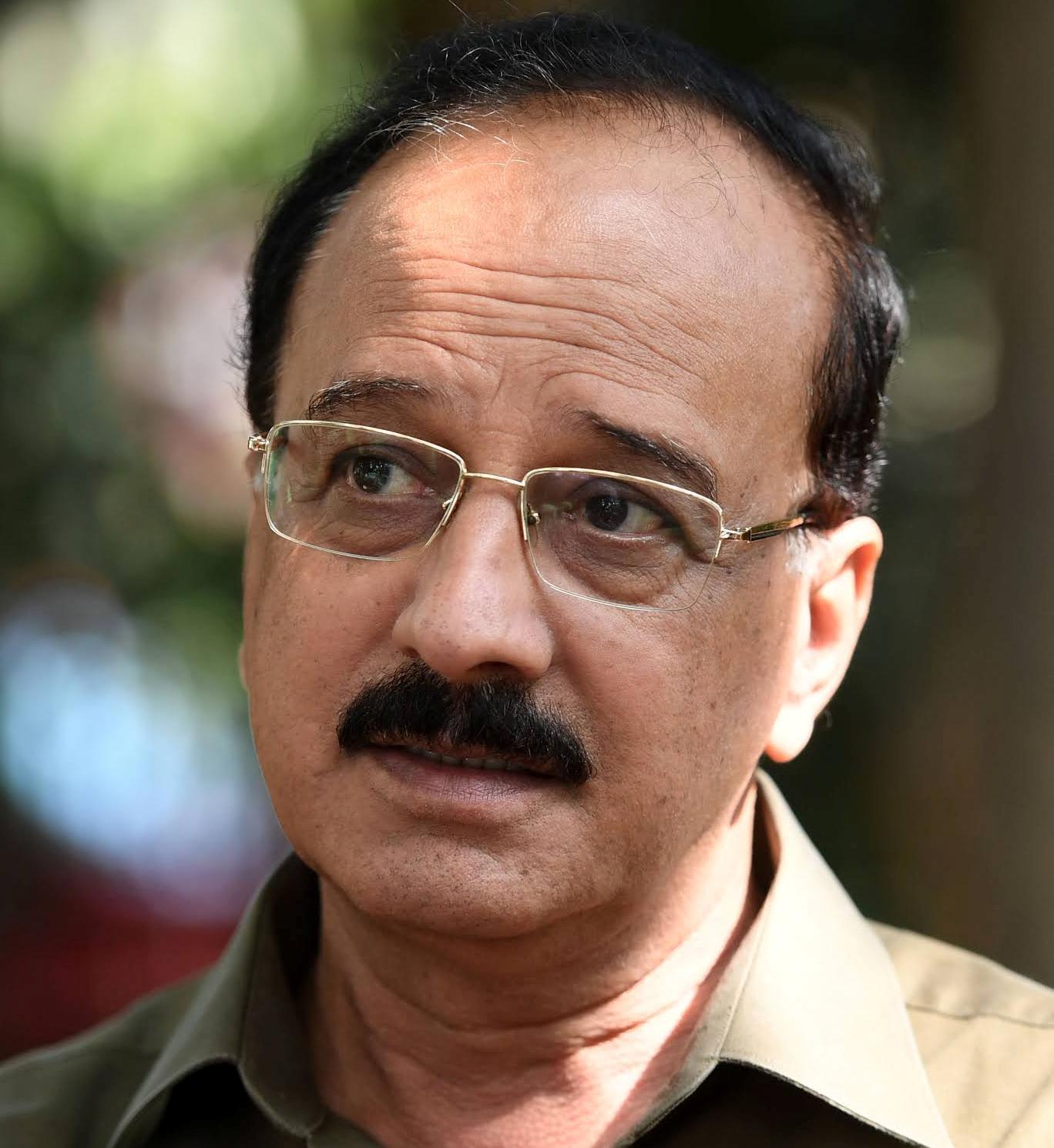
And this is not the first year that a bloodbath is being enacted on the farm. Every few years, a sudden crash in vegetable prices has been witnessed, pointing to a policy paralysis. Over the years, successive governments have failed to properly manage the vegetable surplus that is being produced in one part of the country or the other.
Despite the rhetoric, this huge crisis is because somehow, we have failed to make appropriate capital investment in agriculture and to ensure price guarantee.Farmers Long March to Mumbai, Delhi will revive MSP Demand once again. Farmers while protesting in New Delhi on 20 March have already threatened that if their MSP demand is not fulfilled they will against protest.
You have talked of a legalised MSP to be the solution to the bloodbath that we see on the farm. But the government even after repealing three farm laws and an assurance on MSP has done little to address the issue.
Yes, if the government was serious about announcing anything on MSP, I am sure that this would have becomes a reality. At least this would have been a part of the terms of reference for the MSP committee that has been set up. But anyway, after the three contentious farm laws were withdrawn, demand for legalising MSP still remains unfulfilled. Farmers want MSP be made a legal right which means nothing is purchased in India below the benchmark the MSP provides for.
I take you back when the three farms laws were being debated and discussed after the farmers protest had just begun.
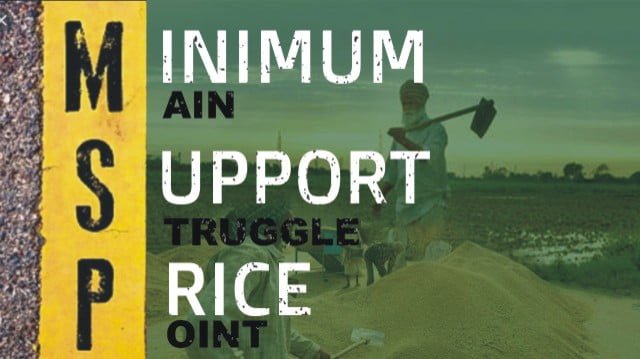
I remember, I had made a statement that actually what the country needs is the fourth law and when I say fourth law I had said it very clearly that what we need to do is to legalise minimum support price which means nothing is purchased below that price either by the private trade or by the government agencies or by the government itself.
Every purchase has to be on or above the minimum support price. Initially there were lot of people who were not in the line with this thinking. But eventually the farmer unions across India understood what I was trying to say and now they are also demanding the same. They are saying that here is need to have a separate law which makes MSP a legal right for farmers. I am glad that the farming community has understood what I was trying to say that we need a separate law.
Also Read: MSP – Minimum Support Price or Maximum Sales Price? What profit does farmer makes?
The opposition to a separate law on MSP is coming form that part of the economic thinking which feels the need to protect corporate interest which sources cheaper raw material. What they are not realising is that if you provide cheaper raw material the negative impact is straight on the livelihood security of the farmers. Imagine, if the farmers were assured of a guaranteed price, the bloodbath that we see on the farm now would have been missing.
Keeping in mind the protest by the farmers and repeal of three farm laws how do you think the year 2022 will be remembered in the agricultural history of India and what has been the impact of the withdrawal of three farm laws on agriculture and for the farmers as well?
It is very clear that when the farm protest ended on 2022, it has been the longest protest the world has ever seen. I term it as an iconic farmers protest. I have never seen farmers protesting in that large number, sleeping on the streets around New Delhi for so long despite extreme winter and harsh summer. The government had to withdraw the laws, which shows the strength of the farming community in India.

One of the outcomes of the farm movement is that farmers now realise their political power. It only shows that the time is now ripe for farmers to have a bigger say on politics — occupying the political space in a country where 50 percent of the population is of farmers.
I see no reason why farmers cannot and should not emerge as a political force. In a democracy it is the numbers which matters. With such a huge constituency, why can’t farmers attempt at forming a government? Farmers have the numbers to elect the government, which means then only they can frame their own laws.
Also Read: A case of 22,000% Return on Investment?
Otherwise the entire economic thinking is to sacrifice agriculture for the sake of industries. This has to change and it will only be when farmers try to become a political force themselves. The natural chronology from the three farm laws is that the farmers should now fan out across the country carrying a political message aimed at building a political force. For any democracy, it is a healthy sign.
Keeping in mind the debate over climate change what do you think are other challenges before India’s agriculture even after MSP gets legalized and it becomes a reality?
To be very clear, agriculture needs a spate of reforms and MSP alone is not the factor that would adequately address all the problems farming encounters in India. But having said that, it is the most important policy initiative that the country must undertake to revitalise agriculture. In my opinion the three most important steps to revitalise agriculture are:
 (A) Providing farmers with a guaranteed income for livelihood security. This alone can bring about an economic turnaround that can lead to Sab Ka Saath Sab Ka Vikas. Provide farmers with a guaranteed income and this is not only for two crops – wheat and paddy but for all 23 crops for which MSP is announced.
(A) Providing farmers with a guaranteed income for livelihood security. This alone can bring about an economic turnaround that can lead to Sab Ka Saath Sab Ka Vikas. Provide farmers with a guaranteed income and this is not only for two crops – wheat and paddy but for all 23 crops for which MSP is announced.
(B) Expand the network of cooperatives, drawing from the experience of Amul dairy cooperative, to crops like vegetables, fruits, pulses and oilseeds.
(C) Making agriculture environmentally sustainable. Let’s be very clear that agriculture is now globally responsible for1/3 rd of the Green House Gas Emissions which means agriculture plays a very significant role in climate change.
Let us be very clear that globally the focus is now shifting towards sustainable farming systems.
In European Union out of the 350 Billion dollars subsidy provisioned under the Common Agricultural Policy (CAP) from January 1, 2023, roughly 247 Billion Euros has been marked for agro-ecological farming systems. If Europe can take this kind of plunge I think India should realise that our future too depends on moving from chemically induced agriculture to non-chemical agriculture.
Similarly, a beginning can be made by following the COP 15 Global Biodiversity Framework that calls for reducing two-third usage of pesticides by 2030. India also needs to move away from chemical pesticides to begin with.
India needs sustainable farming systems and Andhra Pradesh has already shown that. Andhra Pradesh is following the system of Community Managed Natural Farming (CMNF) which is a government run program and under that by 2025-26 they have planned to convert the entire farming population of 60 lakh farmers from chemical to non-chemical farming.
So far, CMNF has already converted seven lakh farmers from chemical to non-chemical farming. If Andhra Pradesh can do it I think the rest of the country can also do it. We need to expand this program to different states so as to move to a healthy and sustainable farming system. This is the need of the times.
Agriculture is in distress not only in India but also in the entire world. Are agricultural markets to be blamed for that?
Markets have failed everywhere in the world to increase farmers income. I have repeatedly said that whether in America, Canada or European Union, Australia and Japan, agriculture is in distress. This is because markets have primarily failed to prop up farmer’s income. Given this depressing scenario, I see no reason why India is hoping that the same system that failed everywhere else will help pull Indian farmers out of agrarian crisis. Agriculture in India needs to move to a guaranteed system of providing farmers with their rightful farm gate prices.
Also Read: Farmers Dying, Middlemen Thriving
Let’s put this to the readers as well. When they go to a market to buy a pen or a cup of coffee or for that matter a shirt, pant, motorcycle and car, everything comes with a price tag. Then why is it that only agricultural produce has no price tag. The point I am trying to make is that it is a global design that has provided a price tag for everything except agricultural products. The reason is simple – leaving agriculture to the vagaries of the markets, to be ruthlessly exploited.

Everywhere in the world farmers are being exploited. It should be clear to us that globally we follow an economic design that sacrifices agriculture to keep economic reforms viable. This needs to change. India can show the way and can aspire to be the role model for the world. If India provides farmers with guaranteed income, believe me farmers across the world too would see merit and call for guaranteed prices.
In fact, even before the Indian farmers hit the streets in 2021-22, American farmers too had in 1979 protested demanding income parity, which means guaranteed income. Hundreds of tractors had marched into Washington DC and stayed in the city for several months. These farmers were also asking for a guaranteed price, which the Indian farmers were demanding 2021-22.
While farmers everywhere are demanding income parity, only economists and policy makers sadly seem to be opposed to it. Unfortunately, keeping agriculture deliberately impoverished is the essence of economic reforms.
India has a great opportunity to showcase modal of an economic design that the world would be forced to follow. India’s hunger statistics put a serious question mark on the implementation of food security. Your response?
Every time when there is talk of food security there are a group of mainline economists who would argue that there is no need of assured food rations for 67 percent of the population under the National Food Security Act.
Also Read: SC Needs to Go Beyond 2nd Phase on Right to Food Security: Justice Narasimha
Even economic survey sometime back had said that only 20 percent people should be targeted for food rations. If roughly 800 million people are living on subsidised rations (now being given free) it only shows ensuring food security cannot be left to the markets.
 We have to ensure that in a country where a large percentage of food insecure populations live, we have to ensure that food reaches reaches every corner. Given that India’s ranking in the Global Hunger Index is 107 out of 120 then India has tremendous responsibility to address hunger or nutritional problems for masses.
We have to ensure that in a country where a large percentage of food insecure populations live, we have to ensure that food reaches reaches every corner. Given that India’s ranking in the Global Hunger Index is 107 out of 120 then India has tremendous responsibility to address hunger or nutritional problems for masses.
At the same time, we have to ensure that people who produce food should not go to bed hungry. Some studies have shown that as many as 57 per cent of the farming population seeps hungry. When we talk of hunger we should also focus on this.
Are you satisfied with the export and import policy of the government and what suggestion would you like to make in this regard keeping in mind the fast-changing scenario in the agricultural world?
I have only one suggestion. First, we must ensure whatever food we import into India should not be below the MSP that we offer to farmers here in India. Whether it is pulses or other commodities we should import and also export at a price not less than MSP.
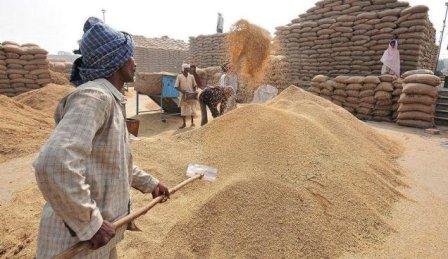 Import tariffs should provide for an enabling environment within the country for farmers to produce more and make the country self-sufficient in those commodities. We cannot go by the WTO diktat of opening up to farm produce which we don’t need.
Import tariffs should provide for an enabling environment within the country for farmers to produce more and make the country self-sufficient in those commodities. We cannot go by the WTO diktat of opening up to farm produce which we don’t need.
For instance, America is now demanding India opens up its genetically modified rice and apple. This should not be ever done. India should ensure that we do not open for genetically modified food from rich and developed countries.
Also Read: Can GM Mustard reduce India’s dependence on edible oil imports?
By allowing cheaper imports we actually end up importing unemployment. We therefore need to strengthen our own production system because the answer is very simple: What India needs is a production system by the masses and not for the masses. ![]()
___________
Also Read:
TRUTH VS FALSEHOOD: BBC – Who is afraid?
Mughal Gardens – Name Changed, But Why?
Industrialization versus Environmental Degradation
Punjab – How a deadly cocktail of Agri-Water-Energy nexus going to destroy it?

Disclaimer : PunjabTodayTV.com and other platforms of the Punjab Today group strive to include views and opinions from across the entire spectrum, but by no means do we agree with everything we publish. Our efforts and editorial choices consistently underscore our authors’ right to the freedom of speech. However, it should be clear to all readers that individual authors are responsible for the information, ideas or opinions in their articles, and very often, these do not reflect the views of PunjabTodayTV.com or other platforms of the group. Punjab Today does not assume any responsibility or liability for the views of authors whose work appears here.
Punjab Today believes in serious, engaging, narrative journalism at a time when mainstream media houses seem to have given up on long-form writing and news television has blurred or altogether erased the lines between news and slapstick entertainment. We at Punjab Today believe that readers such as yourself appreciate cerebral journalism, and would like you to hold us against the best international industry standards. Brickbats are welcome even more than bouquets, though an occasional pat on the back is always encouraging. Good journalism can be a lifeline in these uncertain times worldwide. You can support us in myriad ways. To begin with, by spreading word about us and forwarding this reportage. Stay engaged.
— Team PT


Copyright © Punjab Today TV : All right Reserve 2016 - 2024 |